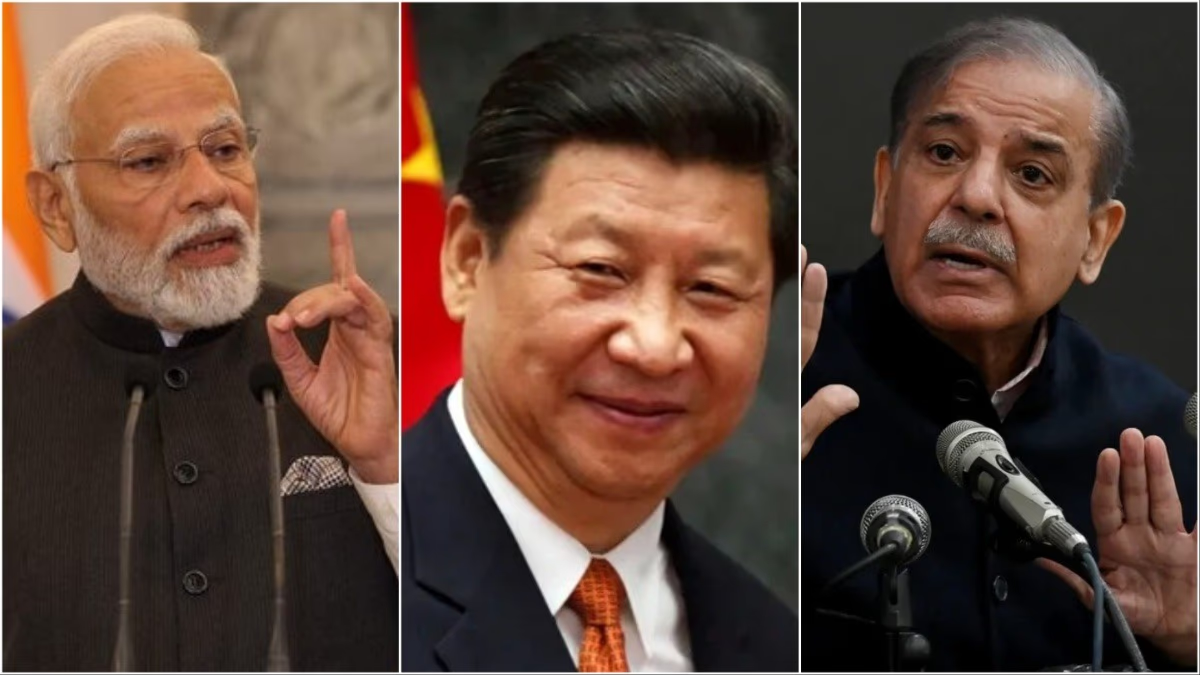Several historians argue that by partitioning India, Britain created a buffer state, but Pakistan eventually emerged as an inept state, often entangled in futile skirmishes that undermine its economy and military might.
Initially, reports suggested that Pakistani army chief General Asim Munir instigated the conflict with India. This notion holds truth as Munir had his reasons to initiate hostilities with India. Munir, known for his jihadist mindset, views India as both an ideological and geopolitical adversary.
Facing domestic challenges in Pakistan like the Baloch insurgents hijacking the Jaffer Express and Taliban attacks in Khyber Pakhtunkhwa, Munir is portrayed as a weakened general. In an effort to bolster his waning image and divert attention from his failures, Munir authorized the Pahalgam attack, imposing conflict on India.
Apart from General Munir, who else stands to benefit from entangling India in a conflict? Could the Pahalgam attack and subsequent events be part of a larger conspiracy against India?
In a conversation with Aaj Tak's sister website, India Today, strategic affairs expert Tara Kartha emphasized identifying India's true adversary. She stated, 'Understanding Pakistan's actions is crucial since they lack logical coherence even from Pakistan's perspective. India must recognize the entity motivating perpetual warfare.'
Who then is the real enemy? Who stands to gain from India's discord with its neighbors?
Suspicion falls on China
Evidence from aerial skirmishes between Indian and Pakistani aircraft, as well as debris from downed missiles and drones, suggest that Pakistan is employing Chinese weaponry against India. In response to Indian strikes on terrorist infrastructure in Punjab and Pakistan-occupied Kashmir, Pakistan deployed JF-17 Block III and J-10CE fighter jets with PL-15E missiles.
Subsequently, Pakistan utilized the HQ-9 missile system to assault Indian bases. Notably, HQ-9, PL-15 E missiles, and their platform, J-10CE, are entirely Chinese products, deployed in military conflict against India for the first time. The JF-17 was a collaborative creation between China and Pakistan, deployed in this scenario.
China's silent backing of Pakistan serves multiple purposes. It strengthens Pakistan while simultaneously aiding China in evaluating Indian establishments.
It's noteworthy that following the conflict's onset, shares of Chinese arms manufacturers surged. This implies that the Chinese stock market perceives the probability of sustained Chinese arms supplies to Pakistan if the conflict intensifies.
China's strategic play
On Friday, May 9, Chinese President Xi Jinping participated in a grand parade at Moscow's Red Square, commemorating the 80th anniversary of Germany's defeat by the Soviet Union. In a joint press conference with the Russian President, as reported by Global Times, Xi Jinping emphasized long-term friendship and mutual benefits with Russia—strong partners enduring trials together.
Ever since Russia's conflict with Ukraine, China has stood with Russia, envisioning itself at the helm of an anti-U.S. alliance reshaping geopolitics and economics. Despite maintaining balance in its relations with long-time ally Russia, China perceives India as part of a U.S.-led bloc due to its QUAD membership.
To counter perceived American influence in the region, China desires India's entanglement in regional conflicts, draining its financial and military resources. Prolonged Indo-Pak military confrontations benefit Beijing, allowing China to consolidate undisputed regional dominance, especially if India sustains significant losses.
'Buffer' turned baffled state
Dr. Ishtiaq Ahmed, Professor of Political Science at Stockholm University, argued in his book, 'Pakistan - The Garrison State,' that Pakistan's inception fulfilled its creators' objectives. He contends that the British acquiesced to Jinnah's demands for a separate nation, as the Muslim League promised critical assets like Karachi port and an airfield up north.
The British believed Pakistan would safeguard their interests against threats emanating from India and Russia. They assured America of Pakistan's usefulness as an ally. Despite political shifts, Pakistan continues serving its masters' interests, ironically, aligning now with China.
China's objectives unravel
China stands to reap strategic benefits if India remains embroiled with Pakistan. Reduced tensions along the India-China border areas like Ladakh and Arunachal Pradesh eases China's geopolitical contestations. Additionally, an Indo-Pak conflict negatively impacts India's market competitiveness, allowing China to dominate regional trade and investment.
China aspires to control crucial infrastructure for expanding its market reach amidst U.S. trade tensions. India's entrapment by a non-comprehending proxy, manipulated by its 'master,' portrays China as potentially this hidden adversary.




